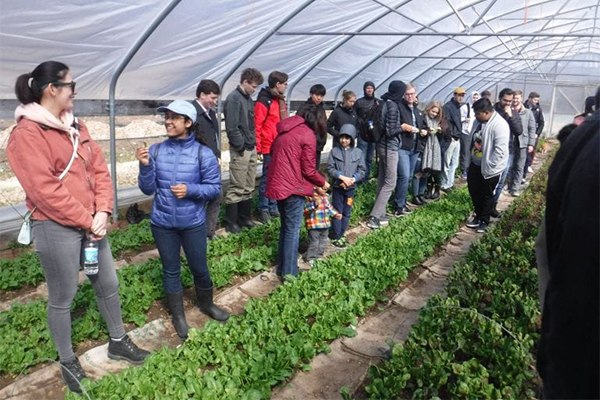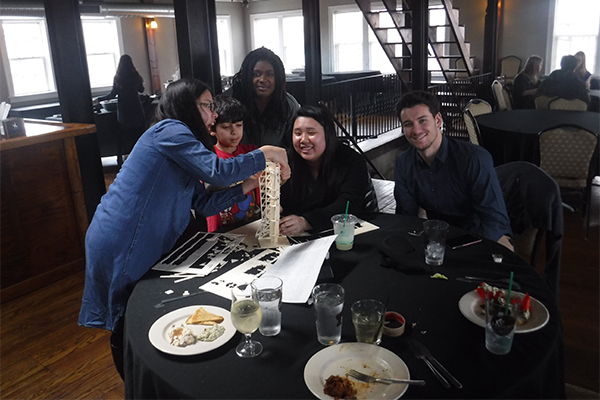Community engaged courses move online
Engineers in the Community will transition from a “community connected” course to a “community engaged” course

Planning to teach Community Engaged Courses this year has presented new challenges, but also opportunities. Seema Dahlheimer, Senior Lecturer at the McKelvey School of Engineering Communication Center, and Tucker Krone, Adjunct lecturer at the McKelvey School of Engineering Communication Center, were teaching their community connected course, Engineers in the Community, when Chancellor Martin announced the transition to remote learning due to COVID-19. As most of their course took place over spring break, they quickly adjusted, but were thankfully most of the way through their course by the time the announcement came.
Engineers in the Community has been exceptionally popular, and, as students describe it, “transformative.” Why? Students explain that getting off campus and having the opportunity to meet and learn in-person from St. Louis leaders, organizers, and members that are working diligently to improve the St. Louis community has helped students to recognize the ways that they can connect their own interests with communities. This year, these faculty members had to plan a course when the very experiences that make their course most meaningful to students were not going to be possible. Rather than get lost in their discouragement, Dahlheimer explains, they decided it was “time to re-envision what form ‘transformative’ would take this year, and likely beyond.” This innovative spirit and commitment to responding to the challenges of the moment follows the history of the course, which was originally created in the wake of the Ferguson Uprising by Sandra Matteucci, Director and Senior Lecturer at the McKelvey School of Engineering Communication Center, with seed funding from the Gephardt Institute.

Krone and Dahlheimer utilized funding from the Gephardt Institute to participate in the Campus Compact Fusion Course: Enhancing Online Education through Community-Based Learning. Krone explains that their plans for their course this year began to take shape through the Fusion course, which was “informative and gave Seema and I the structure and the time to meet together and plan our course.” As a result, Engineers in the Community will transition from being a “community connected” course to being a “community engaged” course. In the past, students got off campus and learned on-site from local organizations and guest speakers – they were connected with the community. This year, the students will continue to learn from community organizations, albeit remotely, and they will also be working with community organizations on projects that will advance their missions – they will be engaged with the community, and both the students and community organizations will benefit from the engagement. For instance, one group of students will be conducting data analysis on an air quality survey that the non-profit organization Just Moms STL can present to the EPA. Other projects are still being developed, but will likely include communications projects, and possibly interactive web based projects. Dahlheimer and Krone explain that regardless, the projects will support students to develop skills that they will need as engineers, from communication skills to skills more traditionally understood as engineering.
The Fusion course is being offered again December 1-18 and January 4-15. Faculty who are planning to transition a Spring community engaged course to an online format, or those who would like to add a community engagement component to their course, are encouraged to contact Cassie Power for more information.
Back to News